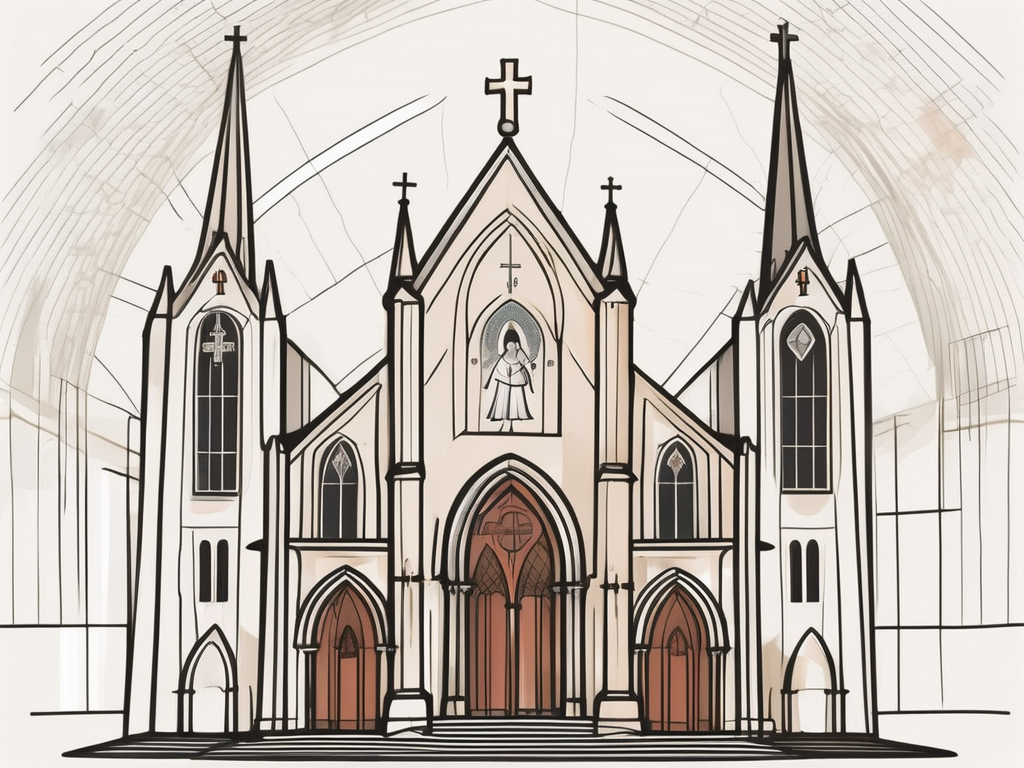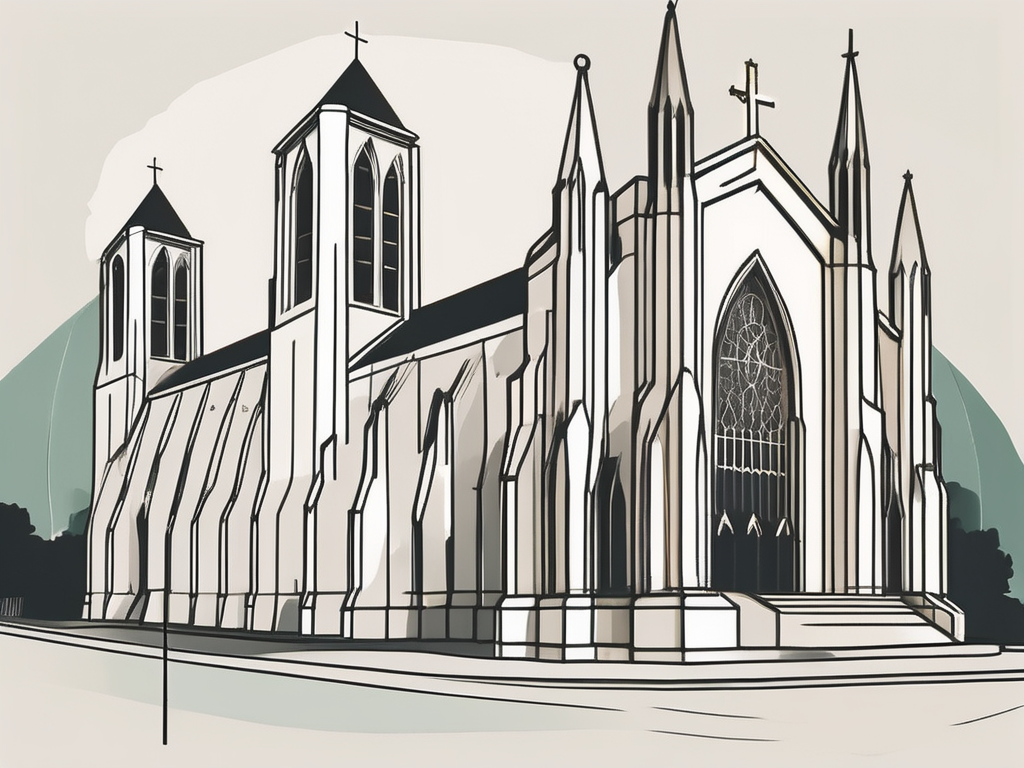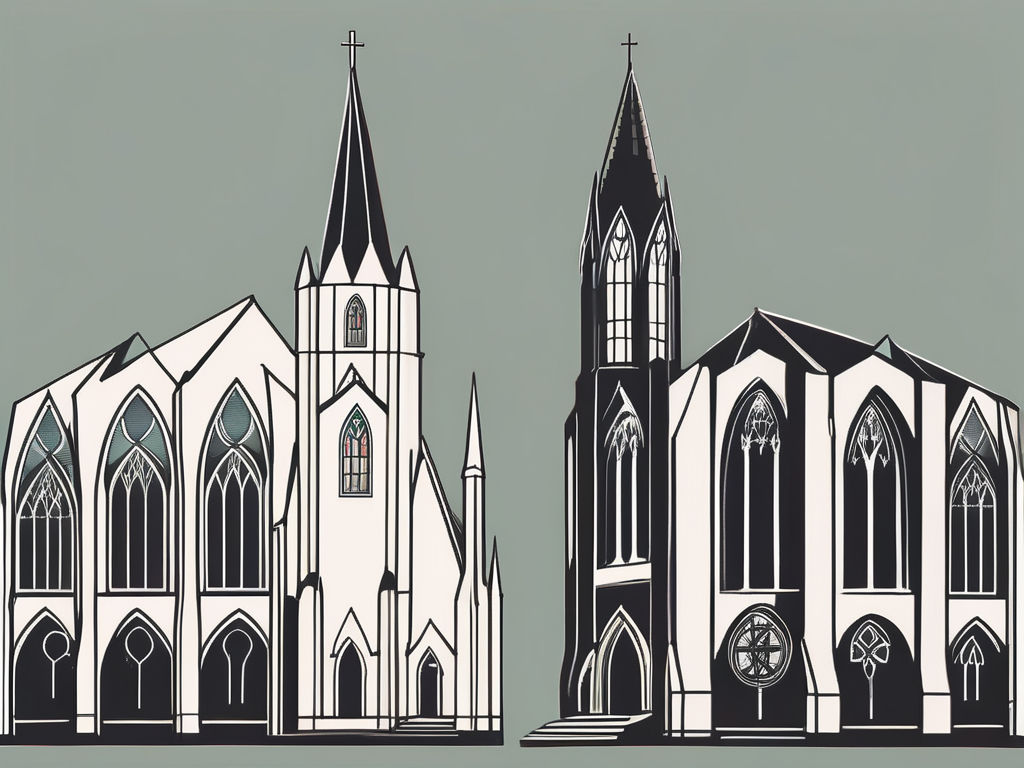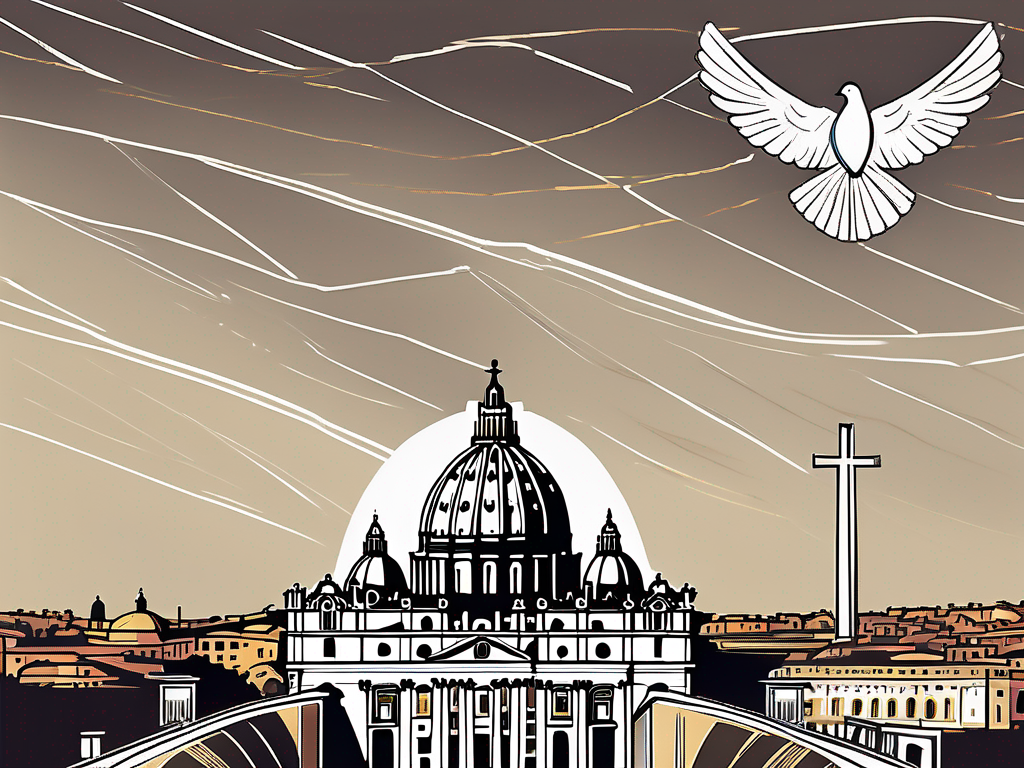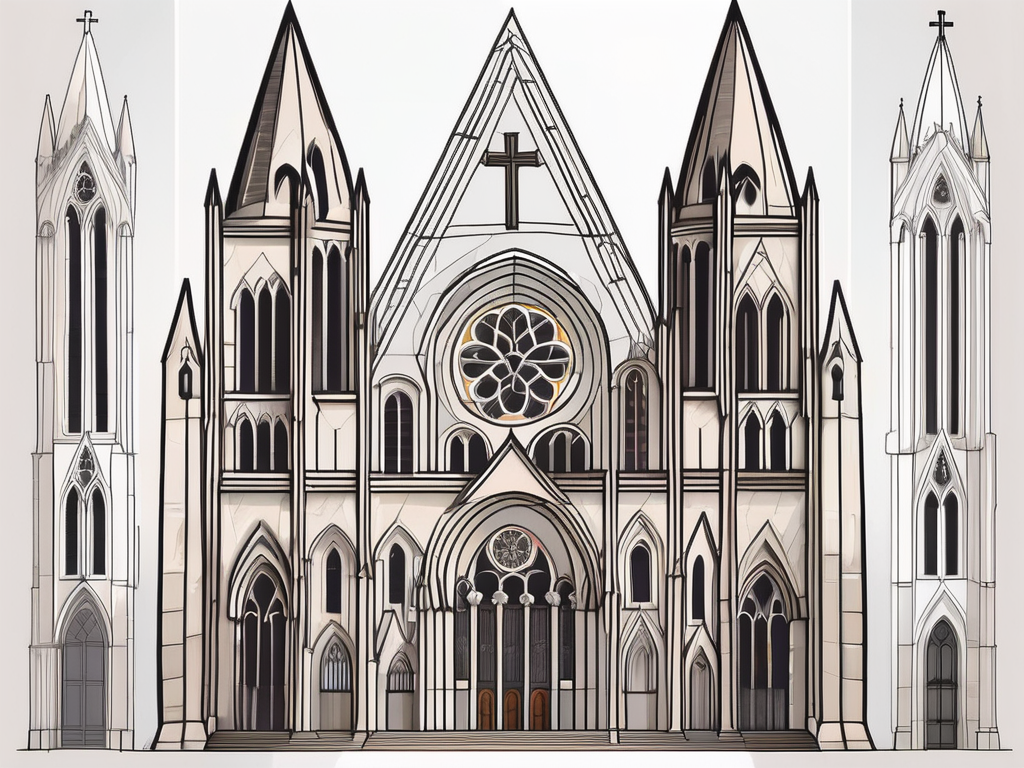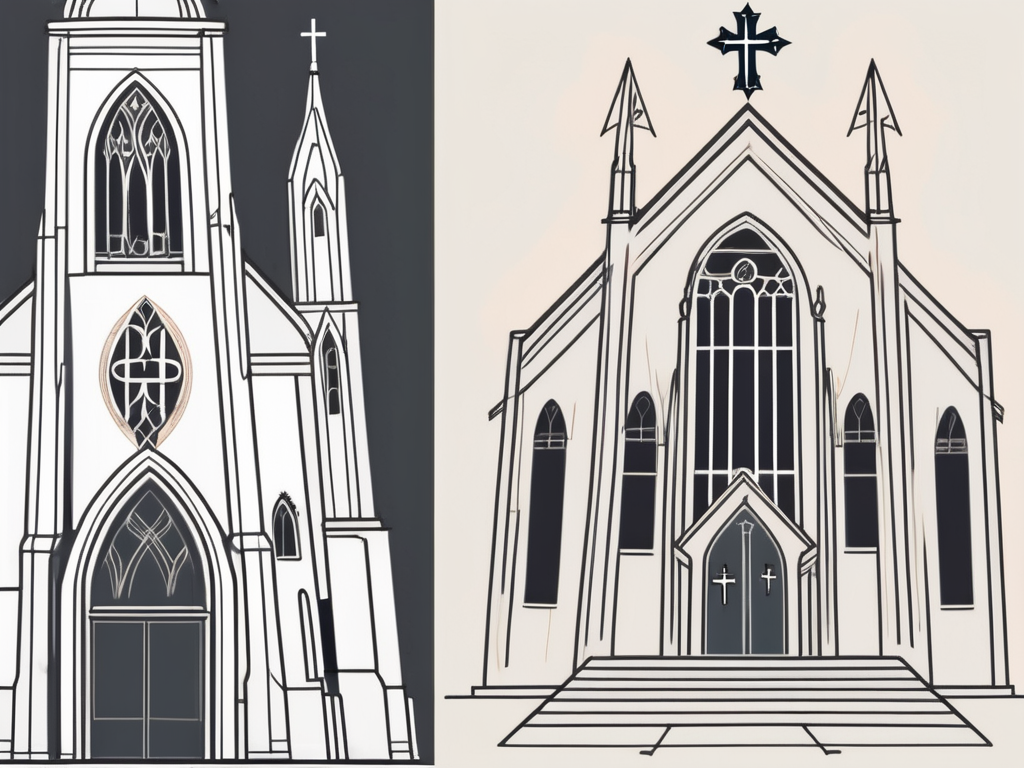When exploring different branches of Christianity, it’s essential to delve into the rich history and diverse beliefs that exist within each denomination. Anglicanism, with its roots deeply embedded in English history, is no exception. In this comprehensive guide, we will take a closer look at Anglican Christian beliefs, from its origins to its modern-day practices, in order to gain a better understanding of this influential tradition.
The Origins of Anglican Christianity
Anglican Christianity emerged during a pivotal moment in history known as the English Reformation. This movement, spearheaded by King Henry VIII in the 16th century, broke the ties between the English Church and the authority of the Pope in Rome. The English Reformation had a profound impact on the development of Anglicanism, laying the foundation for its unique blend of Catholic and Protestant elements.
During this tumultuous period, the English people found themselves caught in a religious and political struggle. The desire for religious reform, combined with the political ambitions of Henry VIII, led to the establishment of the Church of England as a separate entity. This move not only granted Henry control over religious matters in England but also paved the way for subsequent monarchs to shape Anglican beliefs and practices.
The English Reformation and Its Impact
At its core, the English Reformation was a result of political and theological factors. Henry VIII’s desire for an annulment of his marriage to Catherine of Aragon led him to seek a break from Rome’s authority. The Pope’s refusal to grant the annulment pushed Henry to take matters into his own hands, resulting in the Act of Supremacy in 1534, which declared the King as the Supreme Head of the Church of England.
This break from Rome not only had significant political implications but also brought about a shift in religious practices and beliefs. The English people were now free from the authority of the Pope and able to shape their own religious identity. This newfound independence allowed for the development of a distinct form of Christianity that drew from both Catholic and Protestant traditions.
Under the rule of King Edward VI, England diverged further from Roman Catholicism, adopting Protestant theology and introducing the first edition of the Book of Common Prayer. This influential text, composed by Archbishop Thomas Cranmer, provided a standardized form of worship that incorporated elements of both Catholic and Protestant traditions. It became a cornerstone of Anglican worship and helped to solidify the identity of the Church of England.
However, during the reign of Queen Mary I, a brief return to Catholicism occurred, as she sought to restore England to the authority of the Pope. This period of religious persecution, known as the Marian Persecutions, resulted in the execution of numerous Protestant leaders and a temporary setback for Anglicanism. But the tide turned once again under Queen Elizabeth I, who ascended to the throne in 1558 and solidified the Protestant character of the Church of England.
Key Figures in Anglican History
A number of influential figures have shaped the trajectory of Anglicanism throughout history. Thomas Cranmer, Archbishop of Canterbury during the reigns of Henry VIII and Edward VI, played a pivotal role in crafting the first Book of Common Prayer and establishing the theological roots of Anglican worship. His efforts to create a liturgy that reflected both Catholic and Protestant elements laid the groundwork for the distinctive Anglican worship style that continues to this day.
Another prominent figure in Anglican history is Richard Hooker, a theologian and philosopher who lived during the late 16th century. Hooker’s writings on reason, scripture, and tradition helped solidify Anglican beliefs and served as a foundation for Anglican theology. His work, Of the Laws of Ecclesiastical Polity, emphasized the importance of reason and moderation in theological disputes, providing a framework for Anglicans to navigate the complexities of religious doctrine.
Throughout its history, Anglicanism has been shaped by the contributions of countless individuals who have sought to navigate the delicate balance between Catholic and Protestant traditions. From the early reformers to the modern-day theologians, each has played a role in shaping the rich tapestry of Anglican Christianity.
Core Beliefs of Anglicanism
At the heart of Anglican Christian beliefs is a commitment to the threefold sources of authority: scripture, tradition, and reason. While placing emphasis on the Bible as the ultimate authority, Anglicans also recognize the importance of tradition in interpreting scripture and the use of reason in theological reflection.
Anglicanism, as a rich and diverse tradition within Christianity, encompasses a wide range of beliefs and practices. It is rooted in the historical development of the Church of England and has spread to various parts of the world, forming the global Anglican Communion. This expansion has led to the incorporation of different cultural expressions and theological perspectives within Anglicanism.
The Role of Scripture
Anglicans hold the Bible in high regard, considering it as the inspired Word of God. They believe that scripture contains all things necessary for salvation and provides guidance for faith and practice. The Bible is read and proclaimed during worship services, serving as a touchstone for Anglican beliefs and guiding the spiritual journey of its adherents.
Within Anglicanism, there is a deep appreciation for the diversity of literary genres found in the Bible. From the poetic beauty of the Psalms to the profound teachings of Jesus in the Gospels, Anglicans engage with scripture in a holistic manner. They explore the historical context, literary style, and theological themes present in the biblical texts, seeking to understand the message of God for their lives today.
The Importance of Tradition
Anglicans value the wisdom and teachings of the early Church, embracing the concept of continuity with both ancient and Anglican traditions. The Book of Common Prayer itself is a testament to the importance of tradition, as it draws heavily from early Christian liturgies while incorporating contemporary language and expressions of faith. Anglicans believe that tradition helps to safeguard the integrity of the faith and fosters a sense of unity within the worldwide Anglican Communion.
Tradition is not seen as something static or unchanging in Anglicanism, but rather as a living and dynamic force that informs and shapes the faith community. Anglicans engage with the writings of the Church Fathers, the creeds of the early Church, and the historical practices of worship and sacraments. They also recognize the ongoing development of tradition, allowing for new insights and expressions of faith to emerge in response to the needs and challenges of the present age.
The Concept of Reason in Anglicanism
Anglicanism places great emphasis on the use of reason in matters of faith and theology. Anglicans believe that God’s gift of reason allows for the examination and interpretation of scripture and tradition in light of the modern world. This openness to reasoned inquiry and intellectual engagement has enabled Anglican theology to evolve and adapt to the changing social, cultural, and scientific landscape.
Reason is seen as a complement to scripture and tradition, providing a framework for critical thinking and discernment. Anglicans value the exploration of theological questions and the engagement with diverse perspectives, recognizing that faith is not a static set of beliefs but a journey of ongoing discovery. This commitment to reason has led Anglicans to actively participate in theological dialogue with other Christian denominations and engage with contemporary issues such as social justice, ethics, and environmental stewardship.
The Anglican Church Structure
The organizational structure of the Anglican Church contributes to its unique character and governance. While its overall structure varies in different regions, certain elements remain consistent across the Anglican Communion.
The Anglican Church, also known as the Episcopal Church in some countries, is a worldwide Christian denomination with roots in the Church of England. It is known for its blend of Catholic and Protestant traditions, and its structure reflects this diversity.
The Role of the Archbishop
The Archbishop of Canterbury, located in England, serves as the symbolic head of the Anglican Communion. This position holds significant influence and plays a key role in fostering unity and dialogue among Anglican provinces worldwide. The Archbishop’s role is crucial in maintaining the diversity and unity within the global Anglican Communion.
The Archbishop of Canterbury is often seen as a figure of moral authority and spiritual guidance within the Anglican Church. They are responsible for leading the Lambeth Conference, a gathering of bishops from around the world, where important decisions and discussions take place.
Furthermore, the Archbishop of Canterbury has the privilege of crowning the British monarch, highlighting the historical connection between the Anglican Church and the British monarchy.
Understanding Dioceses and Parishes
The Anglican Church is organized into geographic regions known as dioceses. Each diocese is led by a bishop and encompasses multiple parishes, which are local worship communities. Parishes often have their own clergy, who provide pastoral care and lead worship services for their congregations. This decentralized structure allows for local autonomy while operating within a broader framework of shared beliefs and practices.
Dioceses can vary in size and population, ranging from small rural areas to large urban centers. Each diocese has its own unique character and challenges, reflecting the diverse contexts in which Anglicans live and worship.
Within each diocese, parishes play a vital role in the life of the Anglican Church. They serve as the primary point of contact for individuals seeking spiritual guidance and community. Parishes often organize various activities and programs, such as outreach initiatives, educational classes, and social gatherings, to foster a sense of belonging and connection among their members.
Moreover, parishes are responsible for the administration of sacraments, such as baptisms, confirmations, weddings, and funerals. These rituals are significant milestones in the lives of Anglicans and serve as a means of grace and spiritual nourishment.
Overall, the structure of the Anglican Church, with its emphasis on both unity and diversity, allows for a rich tapestry of worship, community, and service. It provides a framework for Anglicans around the world to come together in faith, while also honoring the unique contexts and traditions of each local community.
Anglican Worship and Practices
The Anglican Church has a rich history of liturgical worship, heavily influenced by the Book of Common Prayer. This distinctive form of worship, rooted in both Catholic and Protestant traditions, shapes the spiritual life of Anglicans around the world.
The Book of Common Prayer
The Book of Common Prayer is a cornerstone of Anglican worship. It provides a structure for common worship, including prayers, hymns, and liturgical texts. The Book of Common Prayer allows for both consistency and flexibility, catering to the diverse needs and practices of Anglican congregations while preserving the shared heritage of Anglican worship.
The Anglican Liturgical Calendar
Anglicans follow a liturgical calendar that guides their worship throughout the year. This calendar incorporates various seasons, such as Advent, Christmas, Lent, Easter, and Pentecost, which mark significant events in the life of Christ and the Church. The liturgical calendar serves as a reminder of the faith’s rich history and helps Anglicans engage in a rhythm of worship and reflection.
Sacraments in Anglican Worship
Anglicans recognize two sacraments as essential aspects of their faith: baptism and the Eucharist (also known as Holy Communion or the Lord’s Supper). Baptism signifies initiation into the Christian community, while the Eucharist is a central act of worship, where Anglicans believe they partake in the real presence of Christ. These sacraments hold deep significance and are celebrated within the context of Anglican liturgy.
Modern Anglicanism and Ecumenism
As Anglicanism has spread across the globe, it has encountered various cultural, social, and religious contexts. This diversity has contributed to the evolving nature of the Anglican Communion and its engagement with other Christian denominations and traditions.
Anglicanism in the Global Context
Anglicanism is a truly global faith, with thriving communities found in Africa, Asia, Europe, the Americas, and the Pacific. This international presence adds richness and diversity to Anglican worship and theology, as different cultures and contexts shape the expression of faith within the broader Anglican Communion.
The Anglican Communion and Ecumenical Relations
The Anglican Communion actively engages in ecumenical dialogue and collaboration with other Christian traditions. This commitment to ecumenism, or the pursuit of unity among Christian denominations, is evident in the various interfaith partnerships the Anglican Church has formed over the years. Through these relationships, Anglicans seek to build bridges of understanding and work towards shared goals, such as social justice and the proclamation of the gospel in today’s complex world.
In conclusion, understanding Anglican Christian beliefs is not just a matter of grasping the historical milestones and theological tenets. It involves delving into the spirit of Anglicanism, a tradition that cherishes both unity and diversity, holding scripture, tradition, and reason in harmony. From its origins in the English Reformation to its modern-day practices and engagement with the broader Christian community, Anglicanism continues to evolve, embracing change while remaining rooted in its rich heritage.

